-
Senior Member
registered user
Shopping List (Part II)
(1) After -=-finally-=- getting ALSA to work on my system, whew, now I am having sound quality issues. No hardware was changed, wires, setups as far as how the hardware is set up, just ALSA vs the "default" installed sound from Knoppix.
I can play an audio cd through XMMS and hear a low clicking noise that runs about every five seconds. Both Audacity and ReZound have this problem: I can play a external (line) input device audio, it sounds fine, I hit record, it appears to have recorded fine, until I play the recorded sound back, or save the sound to disk and play it back through any player, I get noise -=- like a static sound -=- that accompanies any sound. When the sound is silent, so is the noise, but as the sound gets louder, so too does the noise. I have tried different volume levels, and same result. What is the big deal with ALSA, I didn't have any of these problems with the "default" sound in Knoppix.
(2) After doing the apt-get upgrade from hell, I now show a 235.8 MEG device, named tmpfs, with a mount point of /dev/shm - where did this come from, and why? It currently shows no space usage, but what is it?
(3) How do you auto-start a program in a user login? Now that I have ALSA, I like to have the mixer up and viewable, but leaving AlsaMixerGUI just running when I log out, does not bring it back up when I re-login. So, how would I get it so that this "program" runs when my user logs in?
(4) ReZound - since I have been having so many problems with Audacity, a nice "feature" of getting ALSA running on my system is that ReZound NOW will let me record, as it wouldn't before. Problem is that it appears that ReZound likes to write to memory while you are recording, considering limited memory, and abundant hard disk free space, and the fact I am recording up to 50 minutes of continuous sound, memory could/will run out. Does anyone know a way to "point" ReZound to working on the hard drive, or a temp folder, instead of memory?
(5) Anyone ever work with a SanDisk Flash Reader (ImageMate II CompactFlash USB), connected to the USB, in Debian/Knoppix? What file system does it use? (ain't vfat thats for sure!)
Sorry for the collection of questions, but since Knoppix.Net was down for almost a day in my part of the world, I collected a few questions while I waited for its return...
Thanks for any and all assistance...
Cuddles
-
Senior Member
registered user
I can play a external (line) input device audio, it sounds fine, I hit record, it appears to have recorded fine, until I play the recorded sound back, or save the sound to disk and play it back through any player, I get noise -=- like a static sound -=- that accompanies any sound.
You say "any player" -- do you mean any external player? I came across the same issue when using line in on my TV card. The sound from the TV application would be fine, but I'd get static on Xmms and so on. The solution was just to turn the volume on line in down.
Some ideas about your other questions (don't regard them as particularly authoritative!):
3. From the Kde manual 
To launch programs when KDE is started, do the following:
Procedure 6.1.
Open the Autostart folder. By default this folder is at $HOME/.kde/share/autostart
Open a Konqueror window and browse to the program you want to add. If you don't know how to do this, it was covered in the section called ôOpening a Window Containing Your Home Directory ö
Drag and drop the desired program from the Konqueror window on to the autostart folder. When asked, choose Link to create a symbolic link rather than a full copy, as this saves a great deal of disk space.
Repeat the above steps for every program you want started when KDE is launched. Remember, you don't need to add native KDE applications, just leave them open when you log out, and they will open up again as if nothing had happened, the next time you log in to KDE.
Restart KDE if you want to see the autostart function in action.
4. It should start using swap. I'd simply try it and see.
5. I don't think anyone has got SanDisk stuff to work in Linux. It's horrible, nasty, nasty stuff: it doesn't appear to be fully standards compliant. Try borrowing almost anything else. FWIW, I use a Zio reader which works fine with Maxwell and (opens camera) eFilm CF cards (and whatever comes as stock with Canon Ixus 3s.
-
Senior Member
registered user

Originally Posted by
fingers99
5. I don't think anyone has got SanDisk stuff to work in Linux. It's horrible, nasty, nasty stuff: it doesn't appear to be fully standards compliant. Try borrowing almost anything else. FWIW, I use a Zio reader which works fine with Maxwell and (opens camera) eFilm CF cards (and whatever comes as stock with Canon Ixus 3s.
Some people at http://www.qbik.ch/usb/devices/ have reported success with some of SanDisk's readers.
Cuddles: What is the usb ID of your reader ? (should be visible somewhere in /var/log/messages)
-
Junior Member
registered user
(2) After doing the apt-get upgrade from hell, I now show a 235.8 MEG device, named tmpfs, with a mount point of /dev/shm - where did this come from, and why? It currently shows no space usage, but what is it?
It's your shared memory!
Alessandro
-
Senior Member
registered user
Ok, I am going to respond to everyone in one reply, in order of there reply to my original post...
Fingers99
(a) as stated in my original post, the volume level has been changed, only thing it changes is the loudness of the sound, w/ the accompanying noise, turning down the volume on the "line in" just decreases the recorded sound w/ the noise, turning the volume up on the "line in" increases the recorded sound, and again, w/ the noise. Only time, and this is at any sound level, the noise is not heard, is during "silent" parts of the sound recording. Both Audacity, XMMS, and ReZound have the identical issues with this noise - until I got ALSA running, no noise was ever noted.
(b) KOOL - and from a manual too, I am impressed, never thought those things were of any use, unless you needed to level your monitor or something [giggle]
(c) So, the thinking is to absorb all my memory and then go after my swap space too - it better come back - or I'm running back to Windows [lol] - I'll give it a try - thanks.
(d) The stuff you tellin' me is greek, is all of that file systems that can be put into fstab? Or are they drivers, or programs???
Windos_No_Thanks
Is this what, or all, of what you are asking for?
scsi1 : SCSI emulation for USB Mass Storage devices
Vendor: SanDisk Model: ImageMate II Rev: 1.30
Type: Direct-Access ANSI SCSI revision: 02
Attached scsi removable disk sda at scsi1, channel 0, id 0, lun 0
SCSI device sda: 31361 512-byte hdwr sectors (16 MB)
sda: Write Protect is off
sda: sda1
What does a "usb ID" look like, give some examples...
Alexxx
Ok - I kinda guessed that from the mount point name used, but who put it their, and why? I have 512 meg of "physical" memory, and 500 meg of "swap" memory - isn't that "also" shared, why do I need this 235.8 meg [i]also]/i] shared as well? Get where I am coming from? Add insult to injury, not one BIT is being used in my SWAP, but something has to take away memory, kinda fishy to me. Hence, my interest in finding out why it is their, and who put it their. If it is benign, I just want to know that its all good - if it was something like a buffer when I was recording my sound files, I exited that program days ago, wouldn't something doing that, release its resources when it was closed down?
-
Senior Member
registered user

Originally Posted by
Cuddles
Is this what, or all, of what you are asking for?
scsi1 : SCSI emulation for USB Mass Storage devices
Vendor: SanDisk Model: ImageMate II Rev: 1.30
Type: Direct-Access ANSI SCSI revision: 02
Attached scsi removable disk sda at scsi1, channel 0, id 0, lun 0
SCSI device sda: 31361 512-byte hdwr sectors (16 MB)
sda: Write Protect is off
sda: sda1
What does a "usb ID" look like, give some examples...
The info should have been a few lines earlier. This is what I get when I connect my cam, the stuff we want is in bold:
Mar 4 19:56:14 tuxbox kernel: hub.c: new USB device 00:03.2-1, assigned address 2
Mar 4 19:56:14 tuxbox kernel: usb.c: USB device 2 (vend/prod 0x4b0/0x104) is not claimed by any active driver.
Mar 4 19:56:20 tuxbox kernel: Initializing USB Mass Storage driver...
Mar 4 19:56:20 tuxbox kernel: usb.c: registered new driver usb-storage
Mar 4 19:56:20 tuxbox kernel: scsi1 : SCSI emulation for USB Mass Storage devices
Mar 4 19:56:20 tuxbox kernel: Vendor: NIKON Model: NIKON DSC E995 Rev: 1.00
Mar 4 19:56:20 tuxbox kernel: Type: Direct-Access ANSI SCSI revision: 02
Mar 4 19:56:20 tuxbox kernel: Attached scsi removable disk sda at scsi1, channel 0, id 0, lun 0
Mar 4 19:56:20 tuxbox kernel: SCSI device sda: 1006992 512-byte hdwr sectors (516 MB)
Mar 4 19:56:20 tuxbox kernel: sda: Write Protect is off
Mar 4 19:56:20 tuxbox kernel: sda: sda1
Mar 4 19:56:20 tuxbox kernel: USB Mass Storage support registered.
-
Senior Member
registered user
I can't seem to locate a line that looks "similar" to that one, or even exact, nor does anything show up in BOLD either - or was that just for clarification for me to see it??
Here is everything from my Linux partition and starting of ext3 to that previous inforomation I gave you...
Mar 4 09:28:59 Polaris kernel: usb.c: registered new driver usbdevfs
Mar 4 09:28:59 Polaris kernel: usb.c: registered new driver hub
Mar 4 09:28:59 Polaris kernel: usb-uhci.c: $Revision: 1.275 $ time 20:50:29 Oct 3 2003
Mar 4 09:28:59 Polaris kernel: usb-uhci.c: High bandwidth mode enabled
Mar 4 09:28:59 Polaris kernel: PCI: Found IRQ 5 for device 00:07.2
Mar 4 09:28:59 Polaris kernel: PCI: Sharing IRQ 5 with 00:07.3
Mar 4 09:28:59 Polaris kernel: usb-uhci.c: USB UHCI at I/O 0xd400, IRQ 5
Mar 4 09:28:59 Polaris kernel: usb-uhci.c: Detected 2 ports
Mar 4 09:28:59 Polaris kernel: usb.c: new USB bus registered, assigned bus number 1
Mar 4 09:28:59 Polaris kernel: hub.c: USB hub found
Mar 4 09:28:59 Polaris kernel: hub.c: 2 ports detected
Mar 4 09:28:59 Polaris kernel: PCI: Found IRQ 5 for device 00:07.3
Mar 4 09:28:59 Polaris kernel: PCI: Sharing IRQ 5 with 00:07.2
Mar 4 09:28:59 Polaris kernel: usb-uhci.c: USB UHCI at I/O 0xd800, IRQ 5
Mar 4 09:28:59 Polaris kernel: usb-uhci.c: Detected 2 ports
Mar 4 09:28:59 Polaris kernel: usb.c: new USB bus registered, assigned bus number 2
Mar 4 09:28:59 Polaris kernel: hub.c: USB hub found
Mar 4 09:28:59 Polaris kernel: hub.c: 2 ports detected
Mar 4 09:28:59 Polaris kernel: usb-uhci.c: v1.275:USB Universal Host Controller Interface driver
Mar 4 09:28:59 Polaris kernel: Initializing USB Mass Storage driver...
Mar 4 09:28:59 Polaris kernel: usb.c: registered new driver usb-storage
Mar 4 09:28:59 Polaris kernel: USB Mass Storage support registered.
Mar 4 09:28:59 Polaris kernel: Serial driver version 5.05c (2001-07-0 with MANY_PORTS SHARE_IRQ SERIAL_PCI ISAPNP enabled
with MANY_PORTS SHARE_IRQ SERIAL_PCI ISAPNP enabled
Mar 4 09:28:59 Polaris kernel: ttyS00 at 0x03f8 (irq = 4) is a 16550A
Mar 4 09:28:59 Polaris kernel: ttyS01 at 0x02f8 (irq = 3) is a 16550A
Mar 4 09:28:59 Polaris kernel: hub.c: new USB device 00:07.2-2, assigned address 2
Mar 4 09:28:59 Polaris kernel: parport0: PC-style at 0x378 [PCSPP,EPP]
Mar 4 09:28:59 Polaris kernel: parport0: Printer, HEWLETT-PACKARD DESKJET 940C
Mar 4 09:28:59 Polaris kernel: parport_pc: Via 686A parallel port: io=0x378
Mar 4 09:28:59 Polaris kernel: usb-uhci.c: interrupt, status 2, frame# 665
Mar 4 09:28:59 Polaris kernel: NTFS driver v1.1.22 [Flags: R/W MODULE]
Mar 4 09:28:59 Polaris kernel: Linux agpgart interface v0.99 (c) Jeff Hartmann
Mar 4 09:28:59 Polaris kernel: agpgart: Maximum main memory to use for agp memory: 409M
Mar 4 09:28:59 Polaris kernel: agpgart: Detected Via Apollo Pro KT133 chipset
Mar 4 09:28:59 Polaris kernel: agpgart: AGP aperture is 64M @ 0xd8000000
Mar 4 09:28:59 Polaris kernel: SGI XFS snapshot 2.4.22-2003-09-03_04:09_UTC with ACLs, realtime, no debug enabled
Mar 4 09:28:59 Polaris kernel: SGI XFS Quota Management subsystem
Mar 4 09:28:59 Polaris kernel: EFS: 1.0a - http://aeschi.ch.eu.org/efs/
Mar 4 09:28:59 Polaris kernel: usb_control/bulk_msg: timeout
Mar 4 09:28:59 Polaris kernel: scsi1 : SCSI emulation for USB Mass Storage devices
Mar 4 09:28:59 Polaris kernel: Vendor: SanDisk Model: ImageMate II Rev: 1.30
Mar 4 09:28:59 Polaris kernel: Type: Direct-Access ANSI SCSI revision: 02
-
Senior Member
registered user
(d) The stuff you tellin' me is greek, is all of that file systems that can be put into fstab? Or are they drivers, or programs???
You should have an entry in /etc/fstab something like:
/dev/sda1 /mnt/sda1 vfat noauto,users,exec,umask=000 0 0
for the card reader to work. (If it will work.)
FWIW, I use a Zio reader which works fine with Maxwell and (opens camera) eFilm CF cards (and whatever comes as stock with Canon Ixus 3s).
OK, Zio is a type of CF card reader made by microtech. (They're pretty common in Europe.) Maxwell and eFilm are 2 manufacturers of CF cards. The Canon Ixus 3 is a common make of digital camera which comes with CF cards.
Note that a mass storage device is not generally accessed in quite the same way as a CF card.
For the sound artefacts, you might try playing around with the gain. Otherwise, see what the Alsa folk have to say.
-
Senior Member
registered user

Originally Posted by
Cuddles
I can't seem to locate a line that looks "similar" to that one, or even exact, nor does anything show up in BOLD either - or was that just for clarification for me to see it??
Yes, I set the interesting line to bold manually.
Maybe it doesn't always show up, perhaps you could try "lsusb -v" (as root) instead ?
-
Senior Member
registered user
Windos_No_Thanks
Here is the output from lsusb -v
Bus 002 Device 001: ID 0000:0000
Device Descriptor:
bLength 18
bDescriptorType 1
bcdUSB 1.00
bDeviceClass 9 Hub
bDeviceSubClass 0
bDeviceProtocol 0
bMaxPacketSize0 8
idVendor 0x0000
idProduct 0x0000
bcdDevice 0.00
iManufacturer 0
iProduct 2 USB UHCI Root Hub
iSerial 1 d800
bNumConfigurations 1
Configuration Descriptor:
bLength 9
bDescriptorType 2
wTotalLength 25
bNumInterfaces 1
bConfigurationValue 1
iConfiguration 0
bmAttributes 0x40
Self Powered
MaxPower 0mA
Interface Descriptor:
bLength 9
bDescriptorType 4
bInterfaceNumber 0
bAlternateSetting 0
bNumEndpoints 1
bInterfaceClass 9 Hub
bInterfaceSubClass 0
bInterfaceProtocol 0
iInterface 0
Endpoint Descriptor:
bLength 7
bDescriptorType 5
bEndpointAddress 0x81 EP 1 IN
bmAttributes 3
Transfer Type Interrupt
Synch Type None
Usage Type Data
wMaxPacketSize 0x0008 bytes 8 once
bInterval 255
Bus 001 Device 001: ID 0000:0000
Device Descriptor:
bLength 18
bDescriptorType 1
bcdUSB 1.00
bDeviceClass 9 Hub
bDeviceSubClass 0
bDeviceProtocol 0
bMaxPacketSize0 8
idVendor 0x0000
idProduct 0x0000
bcdDevice 0.00
iManufacturer 0
iProduct 2 USB UHCI Root Hub
iSerial 1 d400
bNumConfigurations 1
Configuration Descriptor:
bLength 9
bDescriptorType 2
wTotalLength 25
bNumInterfaces 1
bConfigurationValue 1
iConfiguration 0
bmAttributes 0x40
Self Powered
MaxPower 0mA
Interface Descriptor:
bLength 9
bDescriptorType 4
bInterfaceNumber 0
bAlternateSetting 0
bNumEndpoints 1
bInterfaceClass 9 Hub
bInterfaceSubClass 0
bInterfaceProtocol 0
iInterface 0
Endpoint Descriptor:
bLength 7
bDescriptorType 5
bEndpointAddress 0x81 EP 1 IN
bmAttributes 3
Transfer Type Interrupt
Synch Type None
Usage Type Data
wMaxPacketSize 0x0008 bytes 8 once
bInterval 255
Fingers99
The entry I already have in fstab is this - note the only thing missing from yours is the "umask" part - would that cause my mount not to work???
# SanDisk USB - Canabalized - Added by KNOPPIX
/dev/sda /mnt/sda vfat defaults,user,noexec,noauto 0 0
I will make the "1" changes to the mount point, and the device part, and add the umask= part... Will post back on results...
Cuddles
Similar Threads
-
By Gurgham in forum General Support
Replies: 6
Last Post: 07-26-2005, 04:02 AM
-
By vdesibabu in forum Customising & Remastering
Replies: 0
Last Post: 01-05-2005, 05:47 PM
-
By boo ya in forum General Support
Replies: 13
Last Post: 11-08-2004, 06:14 PM
-
By Cuddles in forum Hdd Install / Debian / Apt
Replies: 10
Last Post: 07-13-2004, 11:57 AM
-
By Cuddles in forum General Support
Replies: 1
Last Post: 03-02-2004, 05:40 PM
 Posting Permissions
Posting Permissions
- You may not post new threads
- You may not post replies
- You may not post attachments
- You may not edit your posts
-
Forum Rules


Dell PowerEdge R730 2x E5-2699V3 2.3Ghz 36 Core 128GB RAM H730 X520-I350 2x750W
$329.99
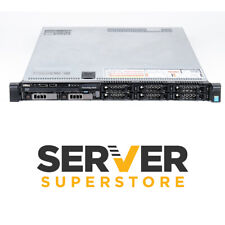
Dell PowerEdge R630 Server 2x E5-2680 V4 = 28 Cores S130 32GB RAM NEW 480GB SSD
$197.99
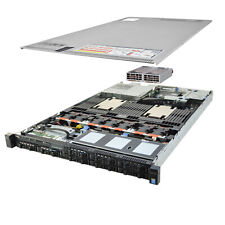
Dell PowerEdge R630 Server 2x E5-2640v3 2.60Ghz 16-Core 64GB H330
$182.65
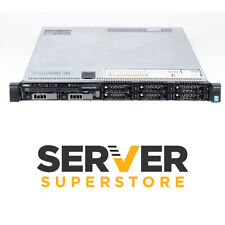
Dell Poweredge R630 Server 2x E5-2620 V4 =16 Cores | S130 | 32GB RAM | 2x trays
$159.99
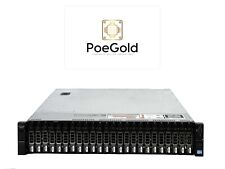
Dell PowerEdge R720xd 26HDD 300gb 2.5-inch E5-2697 X 2CPU 384RAM 7.2 Tb HDD ´┐╝
$180.00
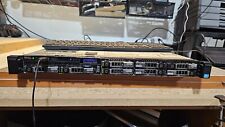
Dell PowerEdge R620 Server - 256GB RAM, 2x8cCPU, 120Gb SSD/3x900Gb SAS, Proxmox
$320.00

DELL PowerEdge R730XD Server 2x E5-2620 v4 2.1GHz /8GB ddr4 memory / NO HDD
$190.00
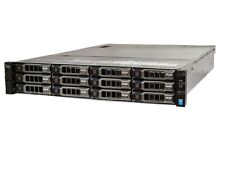
Dell Poweredge R730xd LFF 14-Bay 2U Server | Choose Your CPU & RAM Config
$489.99
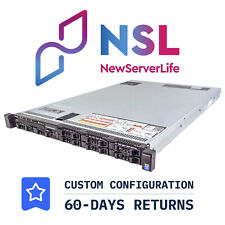
DELL PowerEdge R630 8SFF Server 2x E5-2690v4 2.6GHz =28 Cores 256GB H730 4xRJ45
$530.00
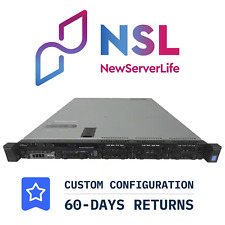
DELL PowerEdge R430 8SFF 2x E5-2680v4 2.4GHz =28 Cores 32GB H730 4xRJ45
$226.00




 Reply With Quote
Reply With Quote










